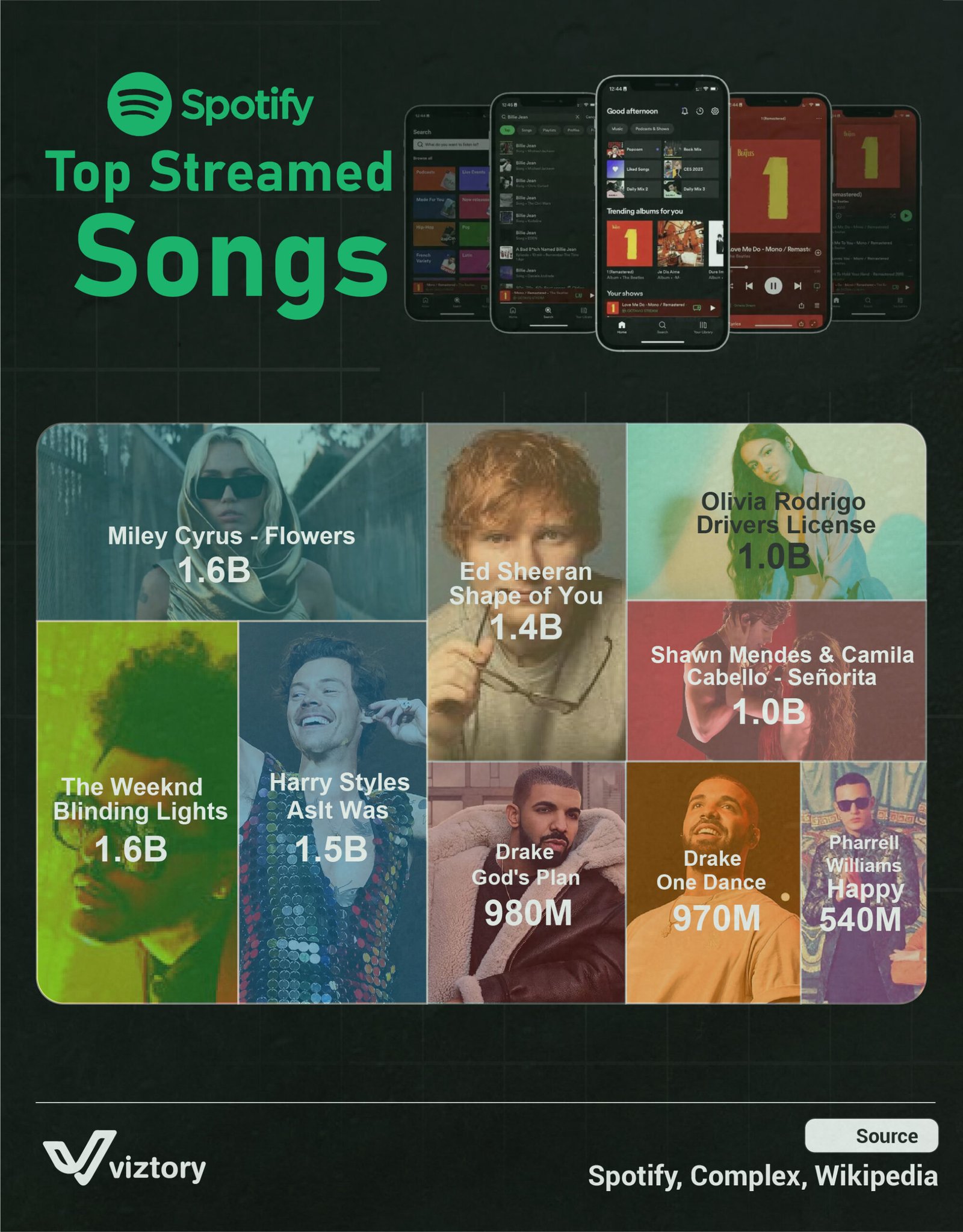Spotify Top Streamed Songs
-
Jan, Sat, 2025
Music and technology have intertwined seamlessly in the digital age, and Spotify stands at the forefront of this revolution. The chart above reveals the most streamed songs on Spotify, highlighting their cultural and technological significance in shaping the global music industry.
The Role of Technology in Music Streaming
Platforms like Spotify have transformed how we consume music, making it more accessible than ever. With billions of streams, these songs represent a shift in listener behavior driven by algorithms, personalization, and convenience. The ability to stream music instantly from anywhere in the world has democratized the industry, allowing artists to reach audiences on an unprecedented scale.
Top Streamed Songs: A Global Phenomenon
Leading the list are The Weeknd’s “Blinding Lights” and Miley Cyrus’s “Flowers,” both achieving an astounding 1.6 billion streams. These tracks exemplify the power of blending catchy melodies with relatable themes, resonating with audiences across demographics. Their success also underscores the role of Spotify’s curated playlists and recommendation systems in amplifying reach.
Harry Styles’ “As It Was” follows closely with 1.5 billion streams, showcasing the growing influence of pop-rock on global audiences. Similarly, Ed Sheeran’s “Shape of You” (1.4 billion) highlights the enduring appeal of acoustic-driven pop tracks, solidifying his position as a streaming titan.
The Influence of Streaming on Emerging Artists
Songs like Olivia Rodrigo’s “Drivers License” (1.0 billion) demonstrate how streaming platforms can catapult emerging artists into stardom. The accessibility of these platforms breaks traditional barriers, enabling talented newcomers to compete with established acts.
Collaborations also thrive in this digital ecosystem. Shawn Mendes and Camila Cabello’s “Señorita” (1.0 billion) illustrates how duets and cross-promotion can generate massive appeal, amplified by Spotify’s social and sharing features.
Hip-Hop and Dance: Dominating the Streams
Drake’s “God’s Plan” (980 million) and “One Dance” (970 million) showcase the dominance of hip-hop and dance beats in the streaming era. These genres thrive on Spotify due to their rhythmic appeal and versatility, making them staples in playlists for diverse occasions.
The Legacy of Classics
Pharrell Williams’ “Happy” (540 million) serves as a reminder of the timelessness of feel-good music. While newer hits dominate the charts, classics continue to amass streams, ensuring their legacy endures in the digital age.
Conclusion: Technology as the Backbone of Music Consumption
Spotify’s data underscores how technology has redefined music consumption, enabling songs to reach billions of listeners globally. The success of these tracks is not just about talent and creativity but also about how technology leverages algorithms, data insights, and user preferences to create a personalized experience. As music streaming continues to evolve, it will further bridge cultures and connect people, making music a universal language powered by innovation.

